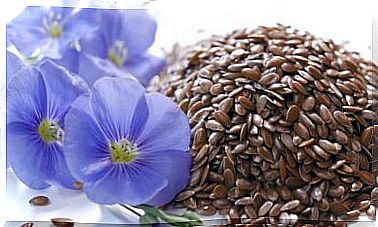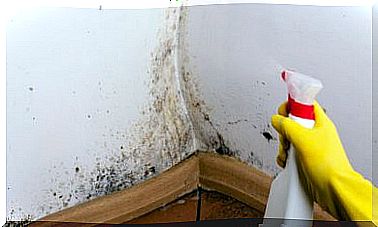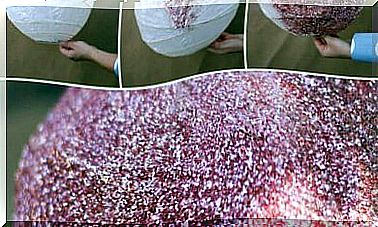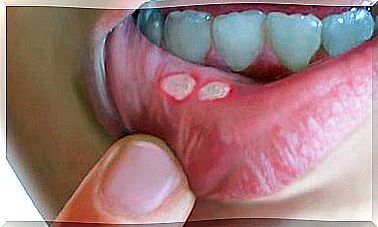5 Homemade Expectorants To Calm A Cough
In case of congestion, it is best to follow the doctor’s instructions. Additionally, you may be consulted about the use of certain home remedies, such as the following expectorant syrups.

Calming the cough is an urgent need when we have congestion and other discomforts. Therefore, we try to seek relief in different ways, one of them is by preparing homemade expectorants with commonly used natural ingredients, such as honey, onion and garlic.
These three ingredients are not only very easy to get, but when put together in the same recipe, the taste is pleasant. Also, honey makes the texture smooth and soothing for a sore throat. Next, we tell you how to prepare them. Take note!
Expectorants
According to a publication in the Offarm Magazine , expectorant medications are those whose properties help to promote the expulsion of bronchial secretions that remain accumulated in the respiratory tract.
They are usually in the form of syrups and are used to soothe coughs, colds, and other bronchial and lung conditions. Its main objective is to achieve an increase in the aqueous secretions of the submucous and salivary glands, which plays a relevant role in the elimination of excess mucus.
5 expectorant syrups to soothe a cough naturally
One of the most common and effective ways to relieve cough discomfort is the use of expectorants. Although the options on the market are abundant, the composition of some ingredients of natural origin offers similar effects and a certain sense of relief.
However, it must be borne in mind that the idea of using these remedies is not to replace the treatment prescribed by the doctor, but to consume them as a complement to it. Of course, always maintaining good lifestyle habits. With this in mind, we show you the 5 recipes that are recommended in the popular sphere.
1. Expecting syrup with honey and cayenne pepper
One of the main components of cayenne pepper and hot peppers is capsaicin, a substance that is characterized by producing a burning sensation in the mouth. According to a clinical trial published in Respiratory Medicine , capsaicin may improve non-allergic rhinitis and decrease cough symptoms.
On the other hand, honey, according to the Mayo Clinic, would also have cough-relieving properties. In fact, it is suggested that be as effective as dextromethorphan, a common ingredient in inhibiting this condition. Since these two ingredients are inexpensive and readily available, their effects are worth checking out.
Ingredients
- The juice of 1 lemon.
- ¼ cup of apple cider vinegar (62 ml).
- 3 tablespoons of natural bee honey (75 g).
- 1 teaspoon of ground ginger (5 g).
- ½ teaspoon of cayenne pepper (2 g).
Preparation
- Add the apple cider vinegar to a pot and then mix it with the juice of a lemon, honey and ginger.
- Next, stir everything with a wooden utensil and let it simmer.
- Add the cayenne pepper and, before it boils, remove it.
- Once it reaches a moderate temperature, pack it in a previously sterilized glass jar.
- You can add it to a glass of hot water to facilitate its intake.
2. Eucalyptus fumes

This is perhaps one of the most popular remedies for treating symptoms associated with the flu or the common cold. As an article published in BioMed Central indicates, the main component of eucalyptus is cineole, which could be effective in the treatment of respiratory diseases, such as rhinosinusitis or asthma.
Ingredients
- 2 liters of water.
- 10 eucalyptus leaves (optional).
Preparation
- Add the eucalyptus leaves to a pot of water and simmer over low heat for five minutes.
- When it is ready, cover your head with a towel, stand at a safe distance from the container (so as not to burn yourself) and inhale the vapors that result from the decoction.
- Try to do it at night, just before going to sleep.
3. Expecting syrup with honey and onion
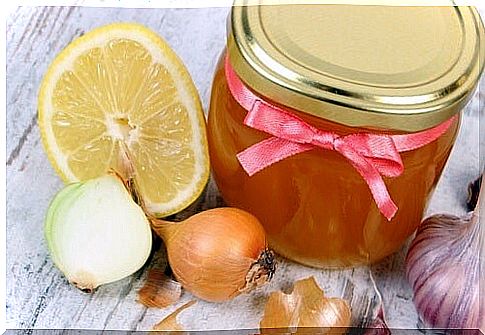
This remedy takes a little longer but is worth a try. The combination of onion with honey allows us to obtain a good-tasting homemade syrup, capable of relieving coughs and providing some relief.
Ingredients
- 1 ½ cup of onion (300 g).
- ½ cup of honey (150 g).
- 1 glass of white wine (200 ml).
Instructions
- The first thing you should do is cut the onion into small pieces.
- When it’s ready, mix it in a glass jar with the honey and white wine.
- Let it marinate for two days.
- Once this time has passed, you can start consuming the resulting syrup.
4. Thyme
A little thyme with honey and lemon gives us a tea suitable to relieve a cough, a sore throat and excess mucus production.
Ingredients
- The juice of ½ lemon.
- 1 cup of water (250 ml).
- 1 teaspoon of thyme (5 g).
- 4 teaspoons of honey (25 g).
Preparation
- To start, bring the cup of water to a boil.
- When it comes to a boil, add the thyme and a tablespoon of honey.
- Later, let it rest for 5 minutes and add the juice of half a lemon.
5. Preparation of apple, honey and lemon
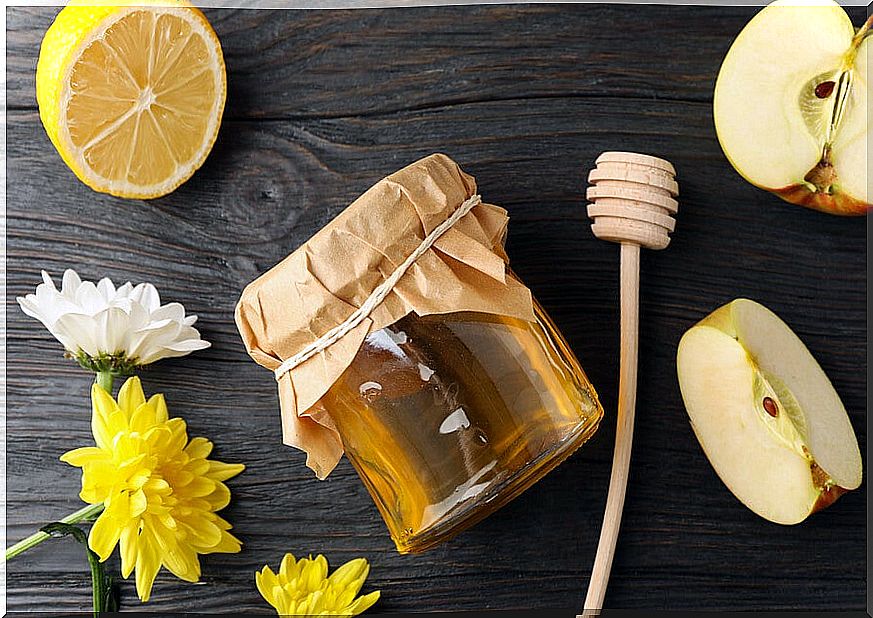
A paste made with apple pulp, honey and lemon is an expectorant solution to calm a cough. This mixture is believed to have an anti-inflammatory and mucolytic effect, that is, it stimulates the elimination of secretions and helps clear the airways.
Ingredients
- ½ ripe apple.
- The juice of ½ lemon.
- 4 teaspoons of honey (25 g).
Preparation
- First, cook the apple and mash it until you get a puree.
- Mix it with the lemon juice and honey.
- Consume a tablespoon a day.
Note : All of these remedies should be consumed in moderation, as they are high in sugar.
Home remedies: supplements for flu days
It is worth mentioning that none of these expectorants, by themselves, will cure a cold, colds or flu. However, to obtain some relief, they can be used (in moderation and after consultation with the doctor) as a complement to the prescribed pharmacological treatment.
These, by moisturizing the throat area, help to calm the cough. In the event that the discomfort persists or intensifies, consult your doctor immediately for a check-up and indicate what other treatment you should follow.

